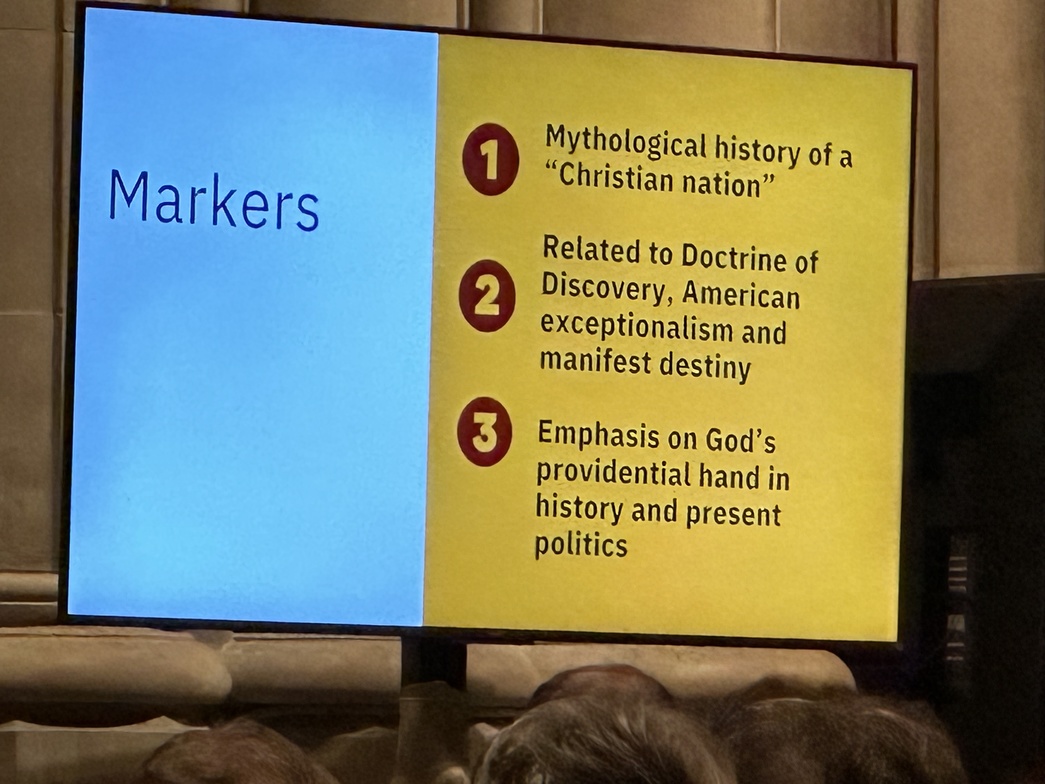Today was a very full day. We began with a presentation by Amanda Tyler, the Executive Director of the Baptist Joint Committee for Religious Liberty. Her organization seeks to uphold religious liberty by defending the free exercise of religion and protecting against its establishment by governments. She spoke about Religious Nationalism, which she defined as a fusion of national and religious identities and goals. This, she stated, is not a new problem but a recurrent problem throughout history and around the world today.
Christian Nationalism, she said, is a political ideology and cultural framework that seeks to merge American and Christian identities. It has three components: a mythological history of a "Christian" nation, is related to the Doctrine of Discovery, American exceptionalism and manifest destiny, and has an emphasis on God's providential hand in history and present politics.
It is not the same as public Christianity but it is an idolatrous and a gross distortion of the teachings of Jesus. The "Christian" part is more about identity than about religion and it uses language and symbols of Christianity. Nationalism is not patriotism. Patriotism is the love of country while Nationalism is an allegiance to a country that demands supremacy over all other allegiances including to Jesus. To repeat, Christian Nationalism has no part in the Christian faith and is not congruent with following Jesus as your Lord and Savior.
Christian Nationalism is not unique to the United States but can be seen in elements of Canadian society as well. Living out our faith in the public sphere is an acceptable expression of our faith, while Christian Nationalism is really a cloaked white supremacy that does not follow the teachings of Jesus. As committed Christians, we face dual challenges. We need to push back against the attempts of secular society to remove our faith from our public lives and keep it from being put into a Sunday-only, in-the-building ghetto. We also need to live fully into our public lives through the lens of our faith and encourage and defend religious pluralism. It is a challenge like Jacob wrestling with the angel yet it is a necessary part of what we are called to be.




